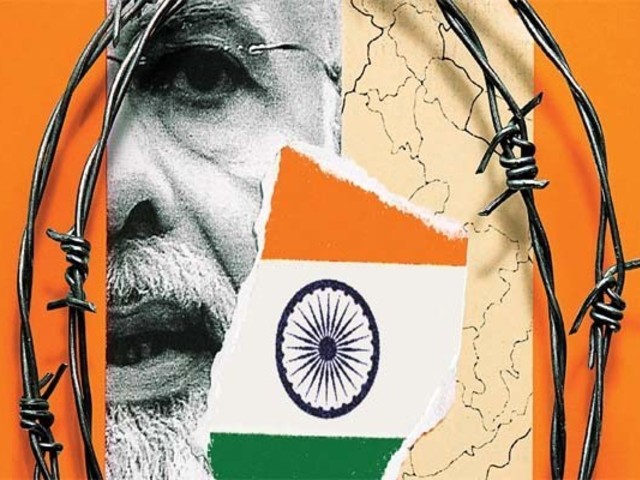
India’s legacy as a secular and diverse democracy is facing a serious challenge as Islamophobia and anti-Muslim violence intensify under the administration of Prime Minister Narendra Modi and the Bharatiya Janata Party (BJP). Under the guise of “Bulldozer Justice,” local and state authorities are systematically demolishing Muslim-owned properties, labeling them as “illegal structures.” These demolitions, however, disproportionately target Muslim communities, particularly in areas with Hindu-majority populations, and are carried out with little regard for due process. This form of “justice” symbolizes the oppression and exclusion faced by millions of Muslims in India today.
A System of Structural Discrimination
Muslim citizens in India face discrimination in many facets of life, from housing and employment to social services and law enforcement. In states like Gujarat and Uttar Pradesh, Muslims encounter overt barriers when attempting to rent or purchase property in Hindu-dominated neighborhoods. For instance, in Gujarat, Muslim single mothers have faced overt rejection when applying for housing, often being told outright that they are unwelcome. The result is a segregated society in which Muslims are confined to specific, often less developed neighborhoods. This discrimination is not accidental but is the result of an environment that tacitly—and sometimes openly—endorses Islamophobia.
The systematic exclusion of Muslims from housing opportunities echoes the apartheid-like practices of housing segregation. This social marginalization perpetuates cycles of poverty, limits access to quality education and healthcare, and heightens communal tensions. By marginalizing Muslims geographically and socially, the Indian state is actively undermining its democratic and secular foundation.
Bulldozing Muslim Properties: A Tool of Oppression
The rise of “Bulldozer Justice” has revealed the government’s willingness to use municipal powers to target specific communities. Under various local ordinances, properties are demolished if they are deemed illegal or encroach on public land. Yet, reports indicate that Muslim neighborhoods are overwhelmingly affected by these demolitions. In Uttar Pradesh and Madhya Pradesh, for example, several Muslim-majority neighborhoods have seen entire blocks of homes razed without proper notice, often without an opportunity for residents to prove the legality of their properties.
Legal Battles and Appeals for Justice
Muslim communities are fighting back against this targeted demolition campaign. Civil society organizations, legal advocates, and victims themselves have appealed to the Indian Supreme Court, demanding that the courts intervene to protect their constitutional rights. These appeals argue that the demolitions are an unlawful encroachment on property rights, calling on the judiciary to fulfill its role as a guardian of constitutional values. However, the court’s reluctance to intervene against a government closely aligned with Hindu nationalist ideals leaves Muslims without recourse or protection.
This judicial silence only emboldens local authorities, giving them free rein to continue demolishing Muslim neighborhoods. The lack of intervention signals a failure of India’s justice system to stand up against state-sponsored discrimination. Without timely intervention, the demolitions will continue, leaving countless Muslim families dispossessed and vulnerable.
International and Civil Society Responses
The bulldozing of Muslim properties in India has not gone unnoticed on the global stage. Numerous international human rights organizations, Islamic countries, and civil society groups have expressed deep concern over India’s deteriorating human rights record. The demolitions, along with broader issues of religious discrimination, have led to calls for greater accountability and pressure from international governing bodies like the United Nations.
Civil society in India, although facing increasing repression, remains a critical force in advocating for Muslim rights. Through grassroots mobilization, legal challenges, and public awareness campaigns, these organizations work tirelessly to highlight the injustices faced by Muslims. Their efforts, however, are often undermined by government crackdowns on dissent, including restrictions on foreign funding for NGOs and the detention of activists under broad anti-terror laws.
Conclusion
India’s use of “Bulldozer Justice” is more than an assault on property—it is an assault on human dignity and the right to exist without fear. If left unchecked, these demolitions will only deepen religious divides, entrench social inequalities, and erode the very principles upon which India was founded. A coordinated international response, along with sustained local advocacy, is essential to hold India accountable and to ensure that Muslims are treated with the respect and fairness they deserve. As the world watches, India faces a critical choice: uphold its democratic values or continue down a path that alienates and marginalizes a significant portion of its population.
